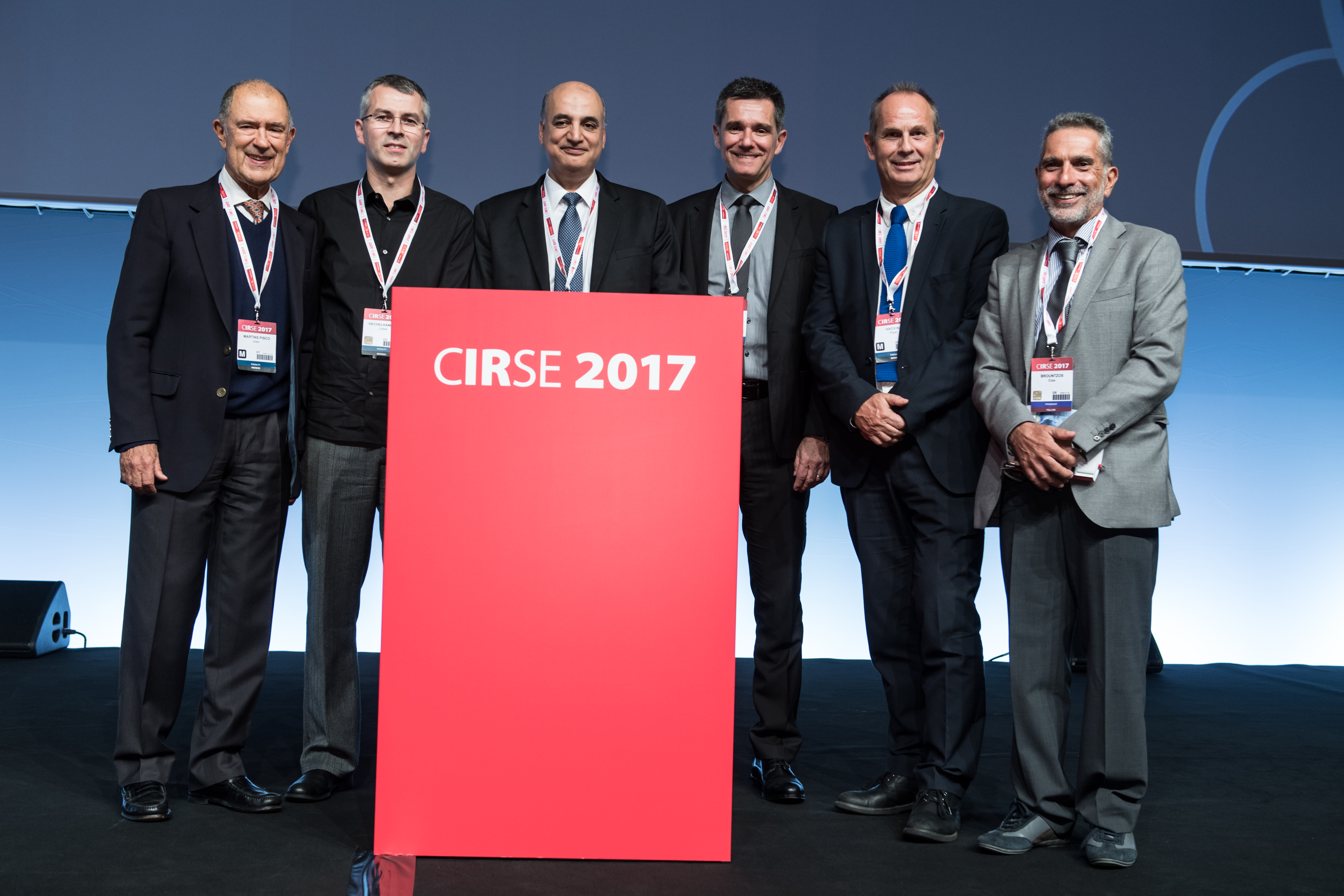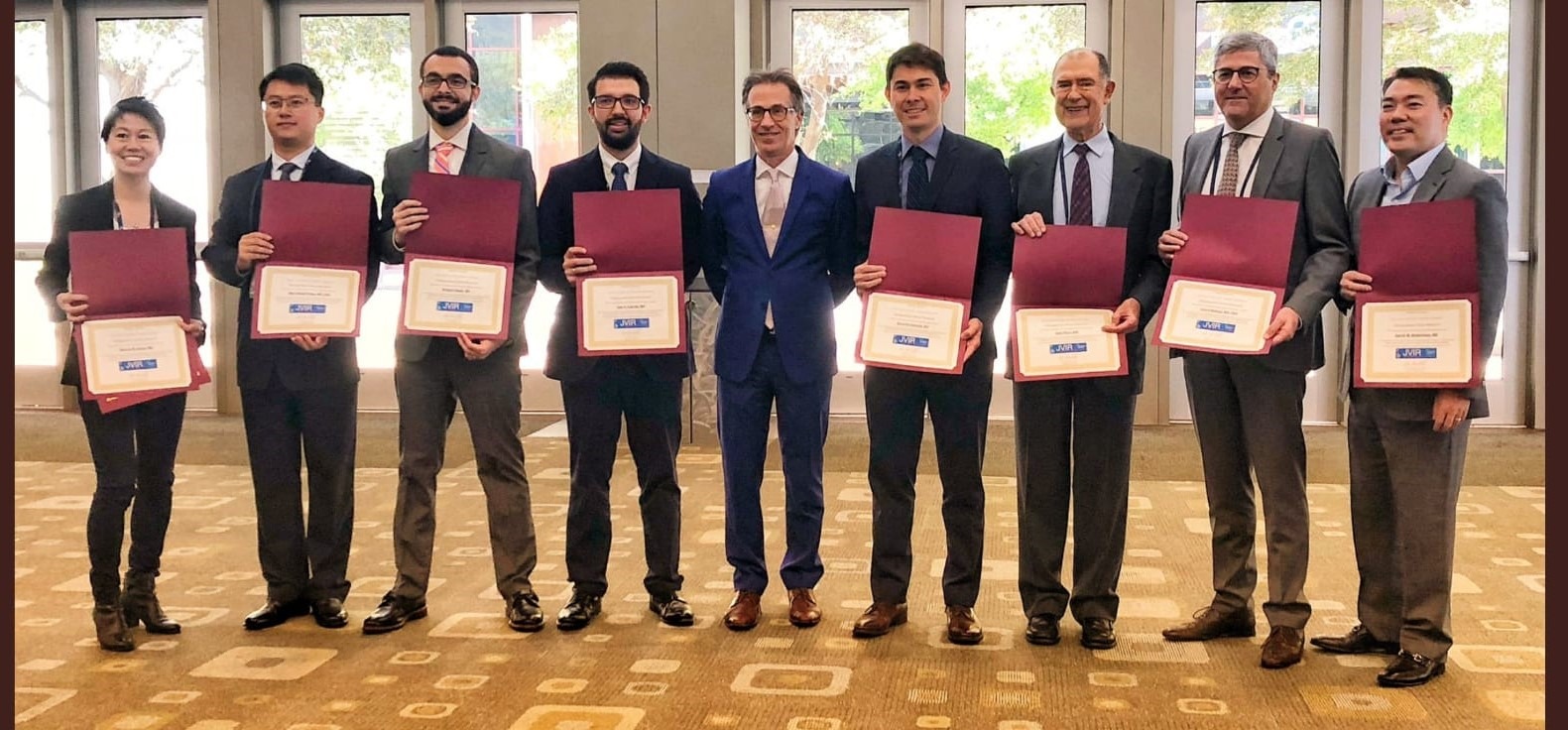Professor João Pisco was a renowned physician, especially within radiology and interventional radiology, both in Portugal and worldwide. His work has been hugely influential within the Portuguese radiology community, and will leave a lasting legacy. Prof. Pisco had an immense interest in image-guided interventions, and followed interventional radiology from its emergence in the 1970s until the end of his life, becoming a landmark figure for interventional radiology around the globe.
Prof. Pisco received his medical degree in Coimbra, Portugal, and completed his radiology residency in Lisbon (1972-1975). Between 1975 and 1976, he held a fellowship in cardiac radiology in the National Heart Hospital in London. Afterwards, he continued his international career as a fellow, instructor and consultant radiologist at the University of Louisiana, USA (1977-1980). These three years in the USA had a profound effect on his whole career, shaping the way he approached medicine and patient care. He decided to pursue interventional radiology, embracing teaching and scientific research simultaneously. Those who learned from him knew his very practical and “American” way of working: “see one, do one, teach one”. He was very accessible and kind, fond of teaching and enthusiastic about all types of minimally invasive, image-guided interventions.
Prof. Pisco returned to Portugal in 1980, where he became a pioneer in interventional radiology. During his subsequent 40 years of practice in Portugal, he was responsible for the dissemination of interventional radiology throughout his country.
He was the director of the Radiology Department of the Santa Marta Hospital between 1980 and 1998. Afterwards, from 1998 until 2005, he was the director of the Radiology Department of the Pulido Valente Hospital. He was also the head of the Interventional Radiology Unit of Saint Louis Hospital in Lisbon from 1998 until his death.
Those who knew him experienced his enthusiasm for all procedures, for highlighting the huge impact on patient’s lives, and for offering many different treatment options and alternatives to surgery with lower morbidity and mortality. He was responsible for the implementation of many different interventional radiology techniques within Portugal, such as percutaneous transluminal angioplasty; intra-arterial fibrinolysis; arterial and venous stent placement; arterial embolisation; intra-arterial chemoembolisation; inferior vena cava filter placement and sclerotherapy of varicocele and pelvic venous congestion syndrome. He became known worldwide for his scientific research regarding arterial embolisation for pelvic tumours during the 1980s at the Santa Marta Hospital, but was best known for the research carried out at Saint Louis Hospital on uterine fibroid embolisation, ongoing since the late 1990s. Since 2009, he had been focusing his research on prostatic artery embolisation.
He put Saint Louis Hospital in Lisbon on the map of the interventional radiology community. This small hospital has welcomed hundreds of interventional radiologists and urologists in the last decade, all coming to learn about prostatic artery embolisation. During his lifetime of work at Saint Louis Hospital, he performed over 2,100 uterine fibroid embolisations and 1,500 prostatic artery embolisations, having a huge impact on all of these patient’s lives.
Outside of his clinical activities, Prof. Pisco was a dedicated teacher and scientific researcher. He completed his PhD thesis on interventional radiology at the Nova Medical School in 1990. His research topic included the vasa vasorum changes following percutaneous transluminal angioplasty, and stent placement in experimental arterial stenoses in a canine model that was published in the Journal of Vascular and Interventional Radiology (JVIR) in 1993 and 1994. Many of the publications and scientific research studies in the 1980s and 1990s included case-reports and retrospective cohort studies including the first patients in Portugal treated with percutaneous transluminal angioplasty, stent-placement and arterial or venous embolisation. In 2008, much of the work performed at Saint Louis Hospital in uterine fibroid embolisation and prostatic artery embolisation started to appear in major international radiology journals, including Radiology, European Radiology, JVIR and CVIR, amongst others.
Prof. Pisco published over 200 research manuscripts, participated in over 400 presentations during scientific meetings, published six books and 78 book chapters, and received many awards for his research in prostatic artery embolisation. He was a devoted teacher, and was the head of the Radiology Department at the Nova Medical School from 1997 to 2011. He taught and reached so many medical students during that time period, introducing them to the fundamental role of radiology in medicine and of interventional radiology for patient care. He would often invite the best medical students to pursue interventional radiology, letting them perform the simplest procedures and guiding them through many interventions. He was also responsible for the post-graduate courses in radiology and interventional radiology that were held in Lisbon every other year, 22 in total, where he hosted nationally and internationally renowned faculty and approximately 200-300 attendees. With all of this exhaustive work, he shaped the present and future of radiology and interventional radiology in Portugal and around the world.
Prof. Pisco held on to his “American” influences, and was an entrepreneur and pioneer. He always tried to maintain the bond between clinical practice and scientific research, and his constant eagerness for new studies and publications made him a frequent participant in both European and American interventional radiology meetings (CIRSE and SIR).
During the last 20 years, there was hardly a CIRSE or SIR meeting where Prof. Pisco was not there presenting the most up-to-date results on uterine fibroid embolisation and prostatic artery embolisation. He was very active during last CIRSE meeting in Lisbon, September 2018, and was present at SIR 2019 in Austin, Texas, USA. Those who knew his passion for IR meetings are not surprised that he passed away during an IR meeting – they were his “home away from home”, and this was his grand finale. Prof. Pisco passed away after a full day of prostatic artery embolisation sessions where he participated as presenter and commentator. Late in the afternoon, he received an award from JVIR for one of his group’s publications from 2018 (see image below). He loved the recognition from his peers, loved SIR and CIRSE, and received three prizes from JVIR during his last 10 years in the field of prostatic artery embolisation.
For him, this was a perfect ending – already in the clouds after receiving another award. He left us, certain that future generations touched by his passion for interventional radiology will keep all minimally invasive, image-guided therapies – including embolisation and angioplasty – alive and well as alternative treatment options to surgery. On behalf of all the patients that he helped treat and save; all the medical students, radiologists and interventional radiologists that he taught – thank you! We hope to see you again someday.
– Dr. Tiago Bilhim


